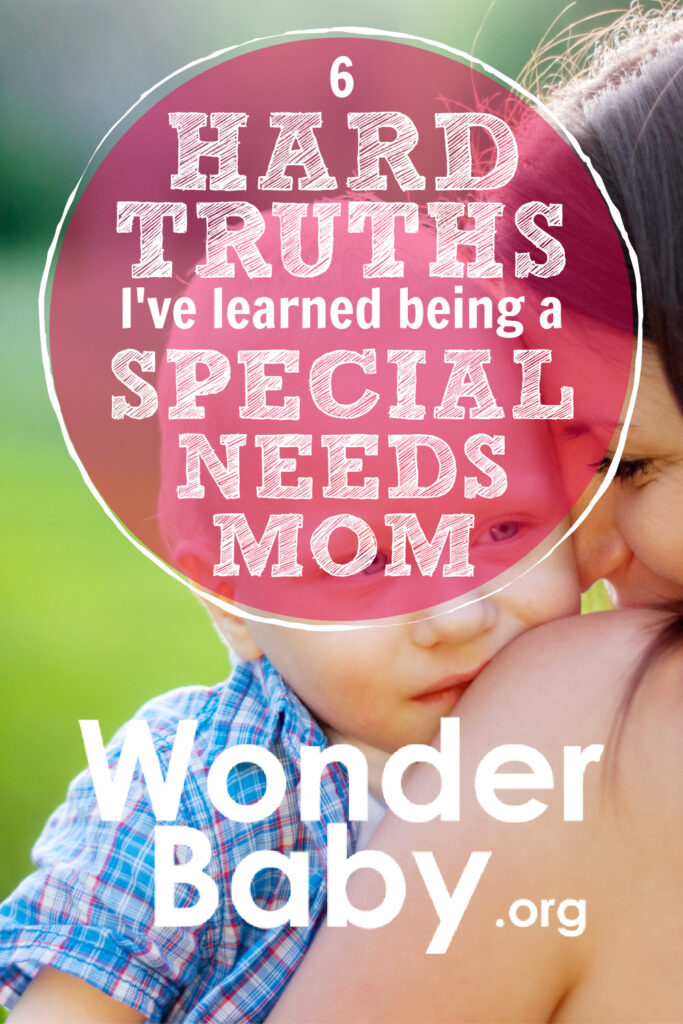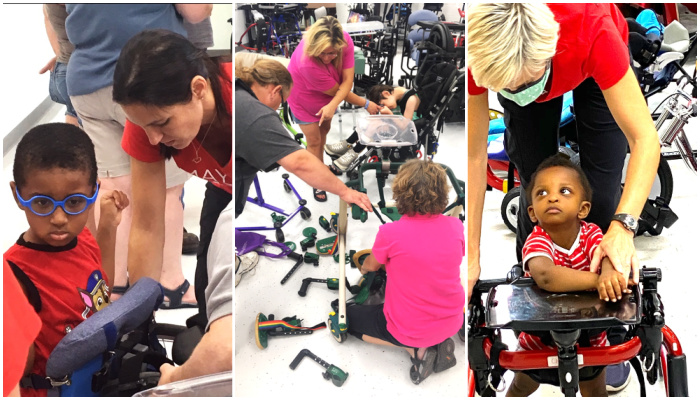6 Hard Truths I’ve Learned Being a Special Needs Mom

I am the mom of a special needs child. This is something that I am extremely proud of, but it’s also something that comes with a lot of challenges.
It’s difficult to explain what my life is like. Everyone knows that it’s tough, but nobody truly understands until they live it themselves. It’s rewarding, infuriating, exhausting, and beautiful all at the same time. I often feel like I’m living in a different world, one that is full of challenges and rewards that most people will never know about.
I want to share some hard truths I have learned while on this journey. They may not be true for everyone, but I hope you can find something to relate to here.
1. The truth is that your life will never be the same, and that’s okay.
There will be times when you feel completely overwhelmed and like you can’t handle everything on your own, but you will get through it. You will find a new normal and a new equilibrium.
You may look back on your “life before” and wonder who that person even was? It’s not recognizable. Your priorities are different now, everything is in a completely different alignment.
But you can and will develop a new routine, something that works for you and your child’s needs. It may not make sense to everyone, but if it works for you then it’s fine. You might get less sleep or only eat breakfast while driving to a morning doctor’s appointment, but instead of worrying about what you’ve lost or the could have beens, it’s better to focus on the here and now and how incredibly adaptable you have become.
2. The truth is that there will be times when you feel completely alone.
You will feel a range of emotions, good, bad, and ugly. They won’t go away. You will cycle through them over and over. The hardest part is that there will often be times when there is no one to share these feelings with.
If you’re struggling, reach out for help from family, friends, or even professionals. There is no shame in admitting that you need some extra support. It can be hard to find support – not everyone will step up to help – but there are people out there who will see you and be there for you.
I’ve often heard people say that if you want to truly find out who your friends are, have a special needs child. They say that your true friends will stick by you and support you no matter what, but the other side of that coin is the reality that many friends and family just can’t (or won’t) handle the difficulties.
Yes, there are times that you will feel alone, but remember that even in your worst moments, there are others out there who understand what you are going through.
3. The truth is that you will never stop worrying about your child.
I think this is probably true for all parents, but so much more so for parents of children with disabilities. Your child is 100% dependent on you for their care, so what happens when you can’t be there?
Not being there can mean so many things. Sometimes you have to sleep. Can you monitor your child while you are asleep? Sometimes your child will go to school or may be in a program with other caregivers. Can those caregivers or teachers really provide the level of care you would? Whenever your child is out of your sight, there is a fear that something may go wrong, there may be a medical emergency, or they just may not get all the attention they need.
Not being there can also mean your child living longer than you.
There are ways you can prepare for the inevitable time when you will no longer be able to care for your child. You can create a long-term care plan or develop a financial support plan, but no matter how much you plan, you will always worry about how your child will manage without you.
4. The truth is you will learn more about yourself and become a stronger person than you ever thought possible.
Children with disabilities need a lot of support and there are so many state, federal and private programs that can be available to provide that support. But guess what? Those programs don’t come knocking on your door to offer their services!
You will have to learn to be an advocate and you will have to foster a strong voice, even if you have never done that before. You are the one who will navigate the paperwork, the phone calls, and the long intake meetings. You will be the one who has to speak up when someone gets something wrong or will have to dispute decisions you don’t agree with.
Sometimes you will also have to lead. Maybe there isn’t a place for your child in your town’s school system or in after-school extracurricular activities. This means that someone will have to step up, let administrators know that there is a lack in their programming, raise funds, organize families, and amplify voices. That someone may have to be you!
You will have to learn to find your patience too and that is hard, but you can do it.
5. The truth is that you will learn to love the small moments and you will see beauty in places others will miss.
Your child’s disability does not define them – they are so much more than their diagnosis and you know this in your soul. But you also know that they have to struggle more than other children just to do the simplest things and that “childhood development” isn’t always easy to see.
You will find the beauty in the struggle, even when it is difficult. You will appreciate the small successes when others might not even see them. You will find comfort in the smallest victories.
6. The truth is that it’s hard, but it’s also the most rewarding thing you’ll ever do.
From doctors’ appointments and therapies to IEP meetings and educational planning, your parenting journey is a hard one. It can be exhausting, both physically and emotionally, but it will also be the most rewarding thing you’ll ever do. You’ll watch your child overcome obstacles that would seem insurmountable to most, and you’ll develop a strength and resilience that you never knew you had.
Your child will teach you about patience, acceptance, and unconditional love. They will remind you that every day is a gift. They will force you to slow down and appreciate the little things.
If you are feeling overwhelmed, remember that you are not alone and that this journey is one that will ultimately make you stronger and wiser.

Related Posts

Special Needs
5 Spring Cleaning Tips for Families of Children with Disabilities
Spring cleaning is an opportunity to create a more accessible, organized, and supportive space for your child with disabilities. Declutter, deep clean, and refresh!

Visual Impairment
The Gift of Understanding: How a Young Child Helps His Blind Father Navigate Life
When a parent is blind, it’s natural for people to wonder how their sighted child will adapt. Will they struggle to understand their parent’s needs? Will they feel burdened by...

Assistive Technology, Support
May We Help: Engineering Independence for People with Disabilities
May We Help is dedicated to designing and building custom solutions that help individuals of all ages achieve mobility, access, and independence, all at no cost.